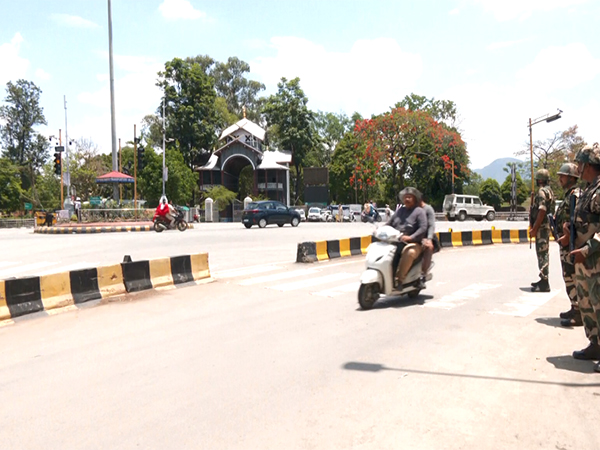Imphal (Manipur) [India], June 2 (ANI): Manipur has been grappling with conflict and blockades for nearly two years, severely disrupting normal life.
As a landlocked state, it relies heavily on NH-02 and NH-37–its lifelines connecting Imphal to Nagaland and Assam–for essential goods, fuel, medicine, and access to healthcare, education, and jobs.
Since the violence began, movement between the valley and hill districts has been severely restricted, worsening the crisis.
Ringku Khumukcham, Editor of Imphal Times, said, “These are the two lifelines of the state, and the progress and the development of the state solely depend on the highways. So, since 2023 May 3, the border highways have been blocked, because of the crisis that sparked on that day itself.”
Residents say both communities are now confined to designated zones, with limited freedom of movement outside their respective areas.
Meisnam Birjit, Advisor, United Youth Club, Kanglatombi Bazar Board, said, “We are in a lot of trouble. Right now, we can’t go there, and they can’t come here. Whenever we have to go out for work, we have to travel by flight. Middle-class people can’t afford this. I want to request the Central government to implement the free movement regime here as soon as possible.”
Efforts were made following the Union Home Minister Amit Shah’s directive to restore free movement, but protests and blockades have repeatedly thwarted those attempts.
While Manipur has seen relative peace since the Governor’s rule began, tensions continue to simmer below the surface.
Thiyam Bharat Singh, Associate Professor at Manipur University, said, “When there is a blockade on the national highway, there is a shortage of essential commodities. Sometimes, security forces guard the goods-laden vehicles, but at other times, the supplies do not arrive on time, causing people to suffer.”
New Zoveng Village in Churachandpur District witnessed a rabies outbreak in April this year and suffered greatly due to delayed medical aid. The delays were primarily caused by movement restrictions arising from ethnic tensions.
At least three lives were lost, and over 700 dog bite cases were reported in the area. As a result, the district was declared a containment zone under the Epidemic Diseases Act of 1897.
The Kuki-Zo community, which predominantly inhabits the area, faced a severe health emergency due to the uncertainty and delays in receiving timely medical assistance.
Jospen Lalhaulian, sister-in-law of a rabies victim, said, “Due to rabies, we have lost our beloved brother, Zistep Lololian. We are very sorry for that. This is due to the non-availability of proper medicines.”
The ongoing conflict and movement restrictions in Manipur have not only hindered daily life but also critically delayed urgent medical aid during emergencies like the rabies outbreak, highlighting the urgent need for restored free movement and sustained peace. (ANI)
Disclaimer: This story is auto-generated from a syndicated feed of ANI; only the image & headline may have been reworked by News Services Division of World News Network Inc Ltd and Palghar News and Pune News and World News
HINDI, MARATHI, GUJARATI, TAMIL, TELUGU, BENGALI, KANNADA, ORIYA, PUNJABI, URDU, MALAYALAM
For more details and packages













